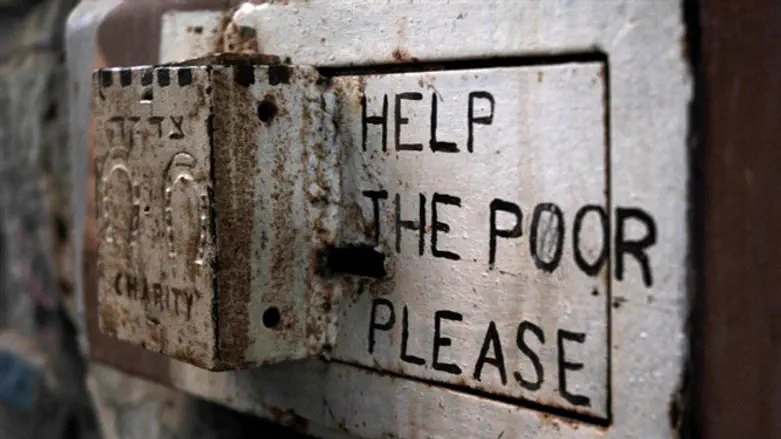
POVERTY
Q. Is there a Jewish view about poverty?
A. Isn’t it Tevye who says in “Fiddler on the Roof” that poverty is no disgrace, but it’s no great honour either?
This probably sums up the Jewish view of poverty.
On the one hand, the Bible says that the poor will not vanish from the earth (Deut. 15:11), and in passage after passage it deems it a great mitzvah to support the poor and alleviate their condition (e.g. Ex. 23:11; Lev. 23:22, 25:35).
On the other hand, it regards riches as a blessing, provided they are used wisely, and Rabbi Yehudah HaNasi, editor of the Mishnah, is reported as showing honour to the rich (Eruvin 86a) – not necessarily because they are better human beings, but because the community needs their help.
Jewish social legislation has focussed from Biblical times onwards on lessening poverty by providing opportunities for self-help:
Maimonides in his Eight Degrees of Charity applauds those who give hand-outs to others in time of need but praises most of all those whose help is anonymous, so no-one will feel humiliated, and takes the form of opportunities to become independent (the Chinese have a similar saying that better than giving a person a fish is to give them a fishing rod).
There is a widespread, anti-Semitic view that all Jews are rich, but what Jews themselves say is “halevai” – “Would that it were so!”
There is hardly a Jewish community without a visible minority who live below the poverty line, though generally they live in dignity and do their best.
Jewish welfare agencies often draw much of their support from people who have now made good but once were penniless refugees who remember how other people were there to help them.
A TAXI TO HOSPITAL ON SHABBAT
Q. I can understand that a women who is about to give birth needs to travel in a taxi to the hospital on Shabbat, but how can Jewish law allow the husband to travel with her?
A. The Talmud says in Tractate Shabbat, codified in halachah, that “We assist a woman to give birth on Shabbat: for her sake we may desecrate Shabbat (Shab. 128b, Mishnah B’rurah 330:4).
Rabbi Moshe Feinstein says that the woman’s peace of mind is a supreme concern and even though the taxi ride might not be life-threatening she might be in a panic and need her husband or mother to keep her calm.
WASHING BEFORE BREAD
Q. Why do we have to wash our hands before eating bread?
A. The ritual washing followed by the blessing "al n’tillat yadayim" is for holiness, not for cleanliness. If one’s hands are not clean they have to be washed first.
The ritual washing follows the example of the priests in the Temple in Jerusalem. Like them we are ministering to God. We are “a kingdom of priests and a holy people” (Ex. 19:6).
Even eating is part of our spiritual life and through washing the hands prepares us to eat our food in purity.